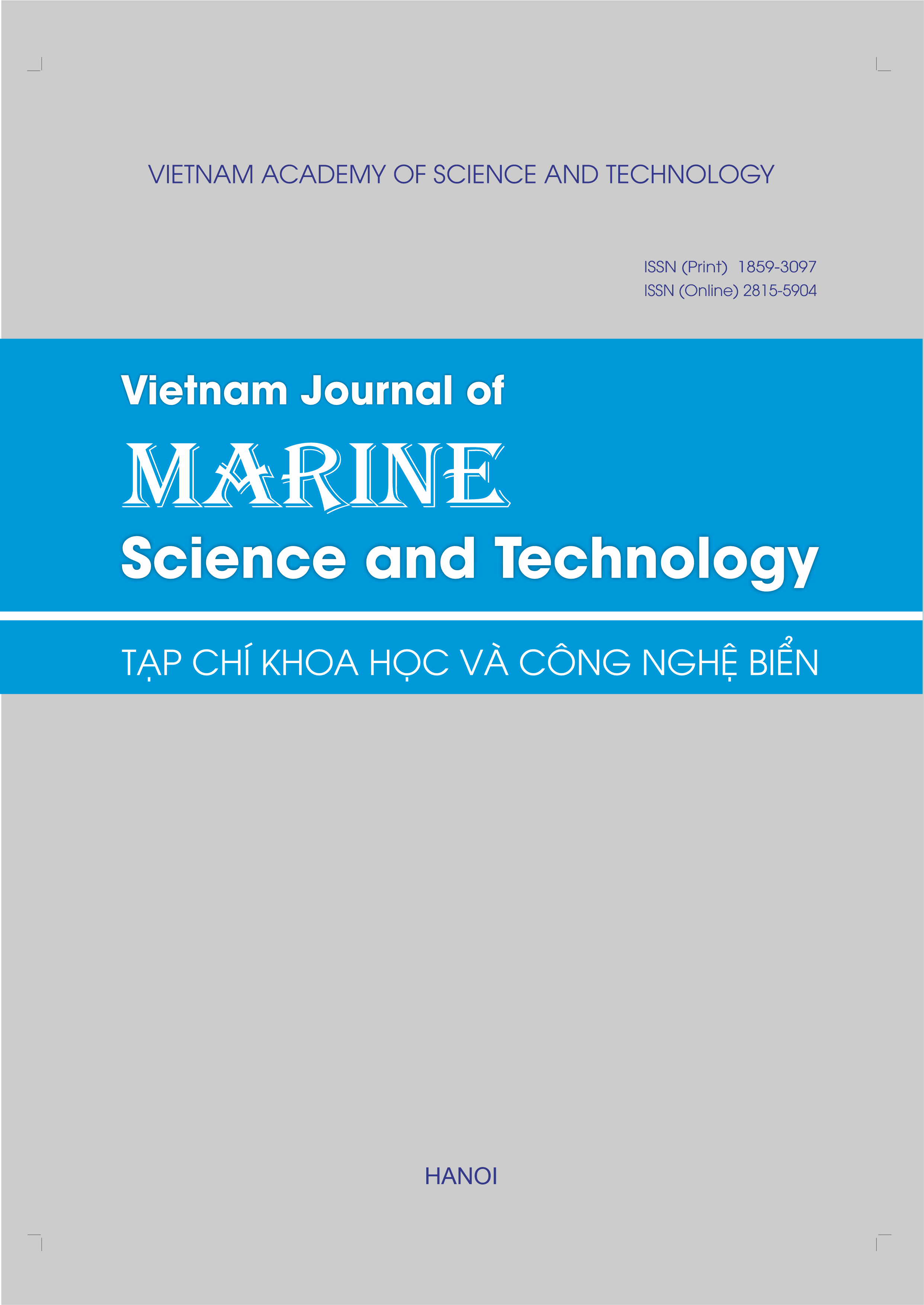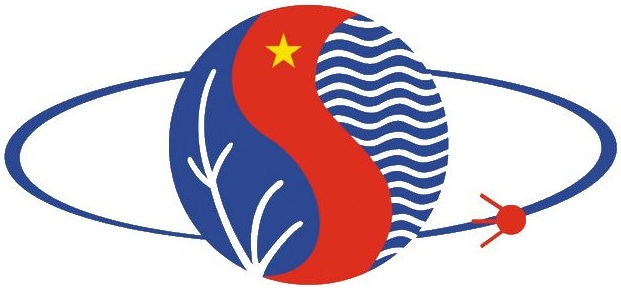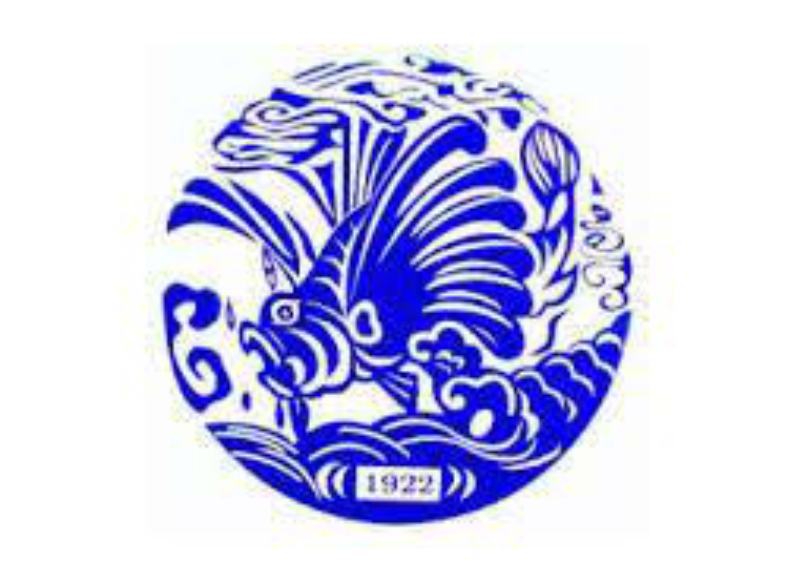ASSESSMENT OF THE SURVIVAL AND GROWTH RATE OF SOME HARD CORAL SPECIES REHABILITATED IN LY SON MPA, QUANG NGAI PROVINCE
Author affiliations
DOI:
https://doi.org/10.15625/1859-3097/18/4A/13640Keywords:
Coral, rehabilitation, Ly Son MPA.Abstract
The total 3,630 foliose corals belonging to Pachyseris speciosa, Merulina scabriculata, Montipora verucosa and Echinopora lamellosa species were translated to restoration in Ly Son MPA. Translated hard corals to restoration were successfully and effectively rehabilitated by using techniques to attach fragment on dead coral substratum and concrete sink (reef balls). Mean survival rate of coral fragments ranged from 96.9% (± 2.7 SD) to 98.5% (± 1.3 SD) on the concrete sink and dead coral substratum, respectively. The growth rate of three species Echinopora lamellosa, Merulina scabriculata and Montipora verucosa ranged between 1.5–2.1 mm/month and did not differ between concrete sink, dead coral substratum and control (P > 0.05). Meanwhile Pachyseris speciosa showed a low growth rate of 0.9–1.5 mm/month which was significantly different between translated fragments and control (P < 0.05). The rehabilitation and protection activities of coral reefs in Ly Son should be continued and expanded, contributing to the protection of biodivesity and marine resource for sustainable economic development.Downloads
References
Spalding, M., Ravilious, C., and Green, E. P., 2001. World Atlas of Coral Reefs. Prepared at the UNEP World Conservation Monitoring Centre. University of California Press, Berkeley USA.
Moberg, F., and Folke, C., 1999. Ecological goods and services of coral reef ecosystems. Ecological Economics, 29(2), 215–233.
Wilkinson, C., 2008. Status of coral reefs of the world: 2008. Global Coral Reef Monitoring Network and Reef and Rainforest Research Centre, Townsville, Australia. 298 p.
Hoàng Xuân Bền, Nguyễn Văn Long, Hứa Thái Tuyến, Phan Kim Hoàng, Thái Minh Quang, 2018. Đa dạng sinh học và đặc điểm quần xã sinh vật rạn san hô ở khu Bảo tồn biển Lý Sơn, Quảng Ngãi. Tạp chí Khoa học và Công nghệ biển, 18(2), 150–160.
Heeger, T., and Sotto, F. (Eds.), 2000. Coral farming: A tool for reef rehabilitation and community ecotourism. Coral Farm Project. 98 p.
Edwards, A. J. (ed.), 2010. Reef Rehabilitation Manual. Coral Reef Targeted Research & Capacity Building for Management Program: St Lucia, Australia. 166 p.
English, S. S., Wilkinson, C. C., and Baker, V. V., 1997. Survey manual for tropical marine resources. Australian Institute of Marine Science. 390 p.
Titlyanov, E. A., Tuan, V. S., and Tytlianova, T. V., 2002. On long-term maintenance and cultivation of hermatypic corals under artificial condition. Collection of Marine Research Works, 12, 215–232.
Nguyễn Đức Cự, Nguyễn Đăng Ngãi, Đào Thị Ánh Tuyết, Nguyễn Văn Thảo, Nguyễn Xuân Thành, Nguyễn Đức Toàn và Đoàn Thị Nhinh, 2011. Một số kết quả thực nghiệm trồng phục hồi san hô tại quần đảo Cô Tô dựa vào cộng đồng. Tạp chí Khoa học và Công nghệ biển, 11(1), 85–95.
Hứa Thái Tuyến, Võ Sĩ Tuấn, Phan Kim Hoàng và Huỳnh Ngọc Diên, 2015. Tỷ lệ sống và tăng trưởng của san hô thử nghiệm phục hồi ở Khu bảo tồn biển Cù Lao Chàm - Quảng Nam. Tuyển tập Nghiên cứu biển, 21(1), 94–102.
Võ Sĩ Tuấn, Nguyễn Xuân Hoà, Phan Kim Hoàng và Hoàng Xuân Bền, 2009. Phục hồi và bảo tồn rạn san hô ở Nam vịnh Quy Nhơn (Bình Định). Tạp chí Khoa học và Công nghệ biển, 9(2), 35–49.
Nguyễn Đình Đàn, Hứa Thái Tuyến, 2017. Xây dựng rạn nhân tạo và kết hợp phục hồi san hô ở vịnh Nha Trang. Tạp chí Khoa học và Công nghệ biển, 17(4A), 147–157.








